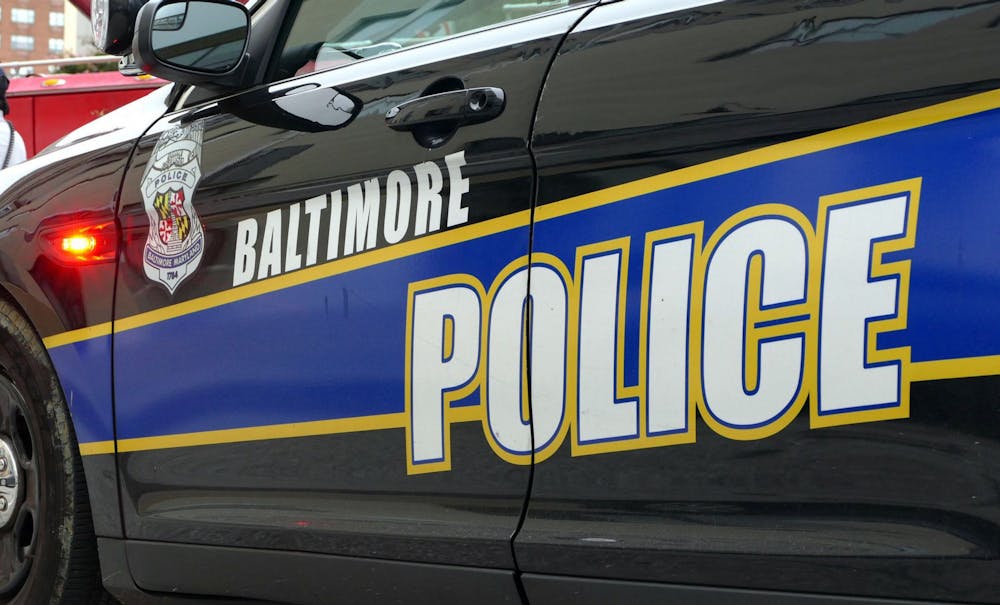When you picture a police officer in your head, what does that person look like?
Chances are, you pictured a white man. According to a 2021 Zippia study, 64.9% of officers in the United States are white and 78.8% are men.
IU senior Rebecca Williams is a cadet within IU Police Department through their two-year Cadet Officer Program. Williams said she hopes to attend graduate school for social work when she graduates, but is gaining knowledge of various law enforcements through the program now.
“We patrol campus throughout the day and we can be the resource that gets someone to people who can help,” Williams said. “My goal with being part of this program was to learn more about how police interact with the community and where I can fit in as a social worker.”
Related: [Black Voices: Media outlets avoid using the term “police violence.” Why?]
Williams identifies as a biracial Black woman, and although she is not working in a city police department, she recognizes the lack of diversity in policing everywhere.
She said increasing diversity in policing may provide a bridge between police and the community, and BIPOC officers might be able to better understand certain situations.
“I think with more representation and more diversity, it could be an opening to more community-based policing,” Williams said. “I can take my experiences I have had as a person of color and hope that other people of color would feel more comfortable coming to me.”
Because Williams is a student, she could not speak for minority or women police officers in city departments. However, Gabriela Esquivel has more experience as a Mexican-American patrol officer for the Bloomington Police Department.
Growing up in Chicago, Esquivel faced childhood hardships that have pushed her to become the officer she is today. Like Williams, Esquivel is able to help more people because of her identity and the experiences that come with it, whether that be through speaking Spanish with them or understanding cultural differences.
“I had my own rough childhood and there were a lot of things that I was like, ‘I can do better for other people where people didn’t do better for me’,” Esquivel said. “When you’ve been a victim of certain situations, it makes it easier for you to identify what it is you are looking at.”
Esquivel recognizes the stigma around police officers today, and she works every day to be a light for officers who do want to make a difference. Esquivel has been a resource for her department to learn about underrepresented communities.
“Back in the day, it used to be considered a very noble profession, and nowadays it is kind of like you go in with the understanding that nobody is gonna like you,” Esquivel said. “Nobody hates bad cops more than cops. BPD asks me informative questions to learn a little bit more.”
This stigma has made it more difficult to increase diversity in the police force.
“I still get comments from my family like ‘That’s what you get for being a cop,’” Esquivel said. “So it’s hard for minorities to come and do this job because you know that you’re gonna be ostracized by the public.”
Related: [Black Voices: What happened to Lauren Smith Fields?]
The discrimination Esquivel has faced comes not only from her family, but also from the public.
“I have been called a spic and a dirty Mexican and all kinds of things by the public while in uniform,” Esquivel said.
She said she has not experienced many direct tribulations from other officers, but she thinks diversity training is important to have. She recalls one year of diversity training where generalizations surprised and almost offended white officers.
Esquivel said the exercise was to name generalizations about every ethnic group, and her class had roughly ten people of color in comparison to 160 white people.
“The majority of the class had no problems giving a generalization for every race until we got to the white race and none of them had anything to say,” Esquivel said. “So we, the Hispanics, all raised our hands.”
Esquivel said that the white officers in the room began defending their generalizations, saying they were not true.
“It became very eye-opening because we could sit there and let them come up with all these generalizations about our cultures but when we said anything about theirs they kept saying it is not true,” Esquivel said. “But that’s why it is called a generalization.”
Increasing the amount of BIPOC in policing could benefit so many people. It could restore trust to see someone another person of color who you can relate to in uniform. These women are doing important work every day.
“I enjoy it, but I really enjoy doing it in this uniform,” Esquivel said.






